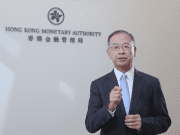Reality Check I: So you got your new job as a Relationship Manager. What is next?
No. 1 How long would you really be staying in this bank?
Personal Banker, Priority Banker or Private Banker. Starting at a new place or new role is always exciting for any Relationship Manager. New institution, new colleagues, different system, processes and most importantly, the opportunity to access to a wide-range of investment products & services, build a quality portfolio of customers and revenue stream.
But would you stay in this organisation for long?
The turnover rate in the wealth management industry is extremely high, especially in banking. Relationship Managers not only face uncertainties in financial markets, but also from unpredictable client’s preferences, regulatory pressures and internal sales & wealth management strategy.
Related Articles
- 50% of Personal Bankers quit in 9 months
- Struggles of Wealth Managers in Singapore
- What does a Relationship Manager do?
Sometimes, the switches are not by choice. Since the 2008 global financial crisis, banking has been going through a series of consolidation.
Asia’s Private Banking M&A Activities
- OCBC Bank acquire ING Private Bank to form Bank of Singapore in 2009
- DBS Bank acquire Societe Generale in 2013
- Julius Baer acquire Macquarie Private Bank in 2011
- Bank of America acquire Merrill Lynch to form BOA ML Private Bank in 2009
- Union Bancaire Privee acquire RBS Coutts in 2015
No. 2 How long would you really be staying in this job?

Is the role of a Relationship Manager exciting for you? Or your stepping stone into roles like investment specialists, product specialists, middle / senior management? Still exploring your career options or just trying to make some money?
Your primary motivation staying on as a Relationship Manager will affect how much you perform on the role, and impacting the quality of your financial advice to clients. Your boss, colleagues or organisation’s expertise may affect your satisfaction level. Some Relationship Managers just enjoy meeting new people and talking to clients everyday.
The turnover rate is pretty high, so your intended stay may not last as long as you think. Check out the many financial institutions you can join:
No. 3 If you think you are in a great company, think twice. Why?
The reason why you move into your new bank is likely because they offer better prospects in culture, products, people, salary or just a fresh start. For every great benefit such as double your salary, it comes at a price with double the KPIs (Key Performance Index) such as AUM, Sales, Revenue, ROA (Return on Assets).
” The grass is always greener on the other side “
Your beautiful office or expensive lunches comes at a price too – higher targets. If it is lower targets, it means lower bonuses.
Going into a driven organisation doesn’t mean everyone is driven. Talk to people from risks, operations, compliance and legal and you will get the message safety and caution are king. None of your work is going to get through smoothly without their contributions and commitments.
No. 4 So everything is in place. Where are your clients?

New job, high salary, nice perks and new colleagues. Where are your clients?
If you join a bank with a large client base, you will likely have to work harder to get high quality clients, ruffle a few feathers when you compete with your peers, or attempt to outshine your boss. The good news is you don’t have to do cold calls, and introduce your less-publicized banks to your prospects.
Read More: What does a Relationship Manager do?
Which means if you are in a lesser known brand, client acquisition, retention may take up much of your time. But the increased attention can help to nurture and build stronger relationship with clients.
No. 5 So you have acquired your clients. How much money do they have?

In the business of Wealth Management, there is nothing you can do as a Relationship Manager without money or Assets under Management (AUM).
If you are in personal banking, any amount will do. In Priority Banking, you need your clients to have at least $200,000 investible assets while in Private Banking, it is more than a $1 Million and in some Private Banks, $5 Million onwards.
If the amount of money doesn’t fit in, you probably selected the wrong market segment or your headhunter had done a pretty bad job.
Read the second part: Reality Check II
- No. 6 Assuming they have ready sums to invest. Is this the right timing?
- No. 7 Can you trust your House Views?
- No. 8 Can you trust your experts?
- No. 9 Can you trust your clients?
- No. 10 Can you trust yourself?
Related Articles
- Where can you start as a Wealth Manager in Banking?
- What does a Relationship Manager do?
- 2015 Overview of the Financial Industry in Singapore
Sign Up / Register
Caproasia Users
- Manage $20 million to $3 billion of assets
- Invest $3 million to $300 million
- Advise institutions, billionaires, UHNWs & HNWs
Caproasia Platforms | 11,000 Investors & Advisors
- Caproasia.com
- Caproasia Access
- Caproasia Events
- The Financial Centre | Find Services
- Membership
- Family Office Circle
- Professional Investor Circle
- Investor Relations Network
Monthly Roundtable & Networking
Family Office Programs
The 2025 Investment Day
- March - Hong Kong
- March - Singapore
- July - Hong Kong
- July - Singapore
- Sept- Hong Kong
- Sept - Singapore
- Oct- Hong Kong
- Nov - Singapore
- Visit: The Investment Day | Register: Click here
Caproasia Summits
- The Institutional Investor Summit
- The Investment / Alternatives Summit
- The Private Wealth Summit
- The Family Office Summit
- The CEO & Entrepreneur Summit
- The Capital Markets Summit
- The ESG / Sustainable Investment Summit





























